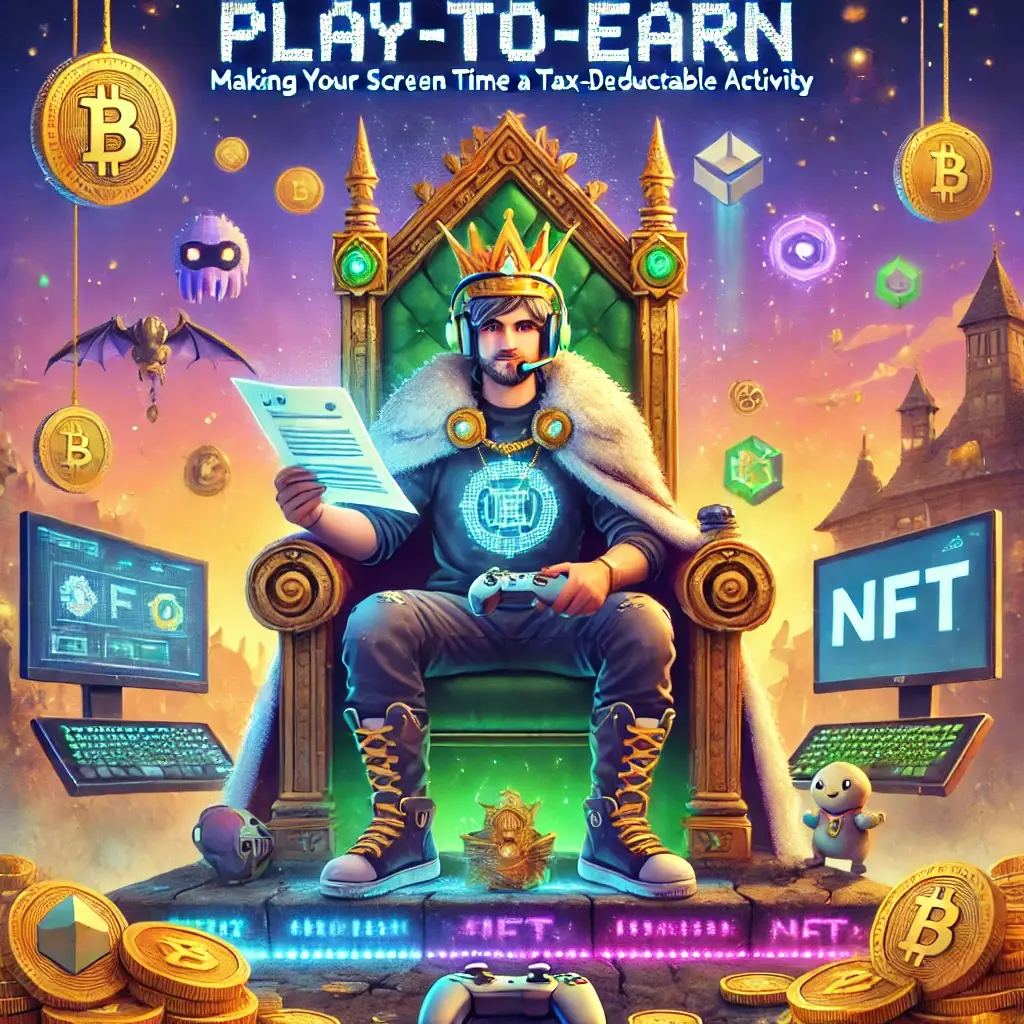Do you remember the good ol' days when gaming was just about wasting time and yelling at your screen? Well, buckle up, because the Play-to-Earn (P2E) revolution has turned those rage-filled gaming hours into something far more profitable—and maybe even tax-deductible.
That’s right, folks. In 2025, we’re not just playing games to have fun; we’re grinding for tokens, flipping NFTs, and dodging in-game taxes like it’s a side quest. Suddenly, your mom yelling, “You’ll never make money playing those games!” feels like ancient history.
How It Works
Play-to-Earn games reward players with cryptocurrencies, NFTs, and other digital goodies that (sometimes) have real-world value. Translation: Your 12-hour marathon of dungeon crawling just became an "income-generating activity." Goodbye, guilt; hello, passive income!
But wait—what’s that? You can write off your gaming PC, internet bill, and energy drinks as "business expenses"? Not so fast, tax warrior. Sure, the idea of turning your room into an "office" sounds appealing, but good luck explaining to your accountant why a $400 skin for your digital dragon was a “necessary investment.”
The Tax Loophole Adventure
Let’s face it, gaming wasn’t designed for tax purposes, but that doesn’t stop the most creative P2E players. Need a justification for upgrading your RGB keyboard? "Ergonomics improve productivity." Upgraded to a triple-monitor setup? "Essential for analyzing crypto charts." Bought a $200 in-game pet? "It's...a morale booster."
Still, you might want to keep a straight face when the tax auditor asks why 80% of your electricity bill is marked as "research."
The Real Challenge: Surviving the Market
While the idea of Play-to-Earn sounds magical, there’s always a catch. Just like in gaming, not everyone gets to be the hero. For every player making bank, there’s another stuck grinding for pennies—or worse, hodling a token that crashed harder than your PC during an update.
So, is Play-to-Earn the future of gaming, or just another overly complicated way to explain to your grandma what you do for a living? That’s up to you. But one thing’s for sure: when your screen time is technically "work," logging off feels a lot less like quitting and more like taking a well-deserved PTO.
The Great Tax Audit of a Crypto Gamer
Mike was a hardcore Play-to-Earn gamer who proudly called his bedroom "the office." His RGB-lit setup looked more like a nightclub than a workspace, but hey, productivity is subjective, right?
One day, Mike decided it was time to "optimize" his taxes. He listed everything as business expenses: gaming chair ($500), ultra-wide monitor ($1,200), and even the pizza deliveries during his 48-hour tournaments. “It’s all necessary for performance,” he reasoned.
The trouble started when Mike claimed his in-game purchases as "investments." A $300 virtual sword? “Business tool for efficiency.” A $1,000 NFT pet dragon? “Team morale booster.” His accountant, confused but curious, submitted the report.
A month later, Mike got a letter from the IRS. They were auditing him.
When the auditor arrived, Mike tried to explain how his dragon boosted his earnings by intimidating other players. The auditor, a middle-aged man who clearly thought "NFT" was a typo, looked at Mike’s screen, then back at him.
“So, you’re telling me this... sparkly digital lizard is part of your business strategy?”
Mike nodded earnestly.
After a long pause, the auditor said, “I’m adding this to my list of weirdest cases. But sure, let’s call it... 'marketing.'”
In the end, Mike got a warning instead of a fine. The auditor even asked for advice on which crypto games to play. "But no dragons," he muttered as he left.
